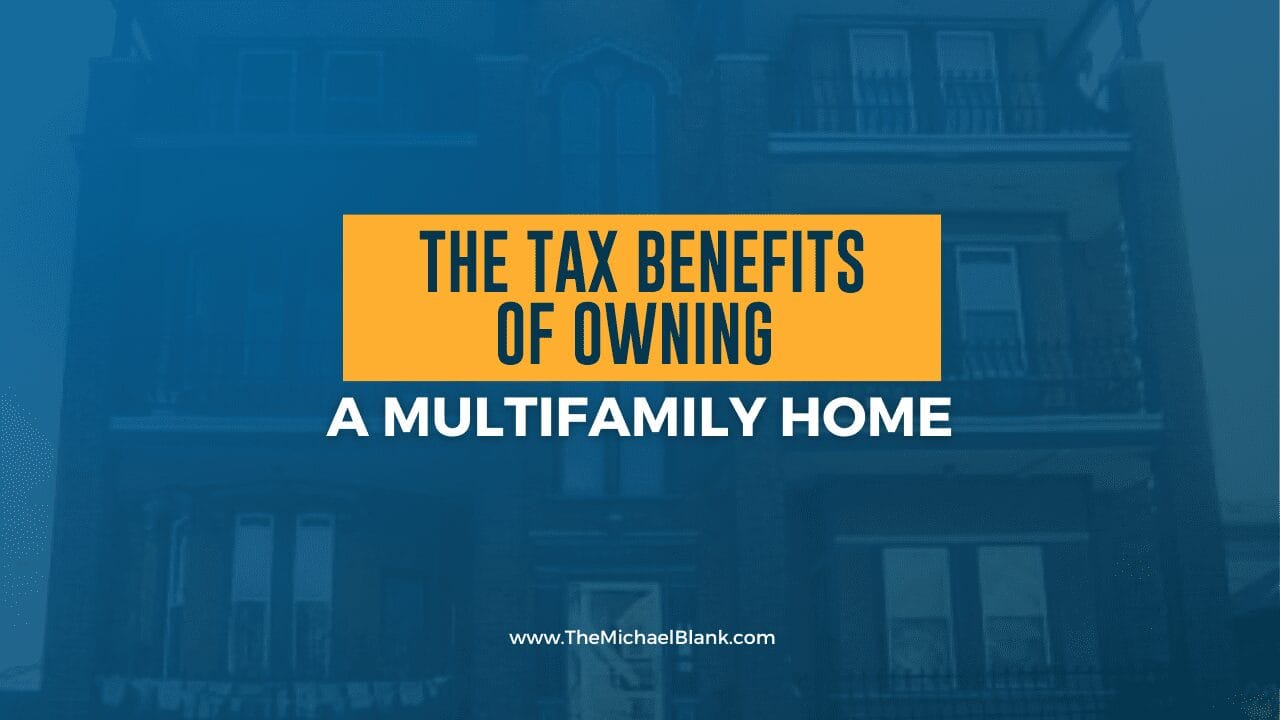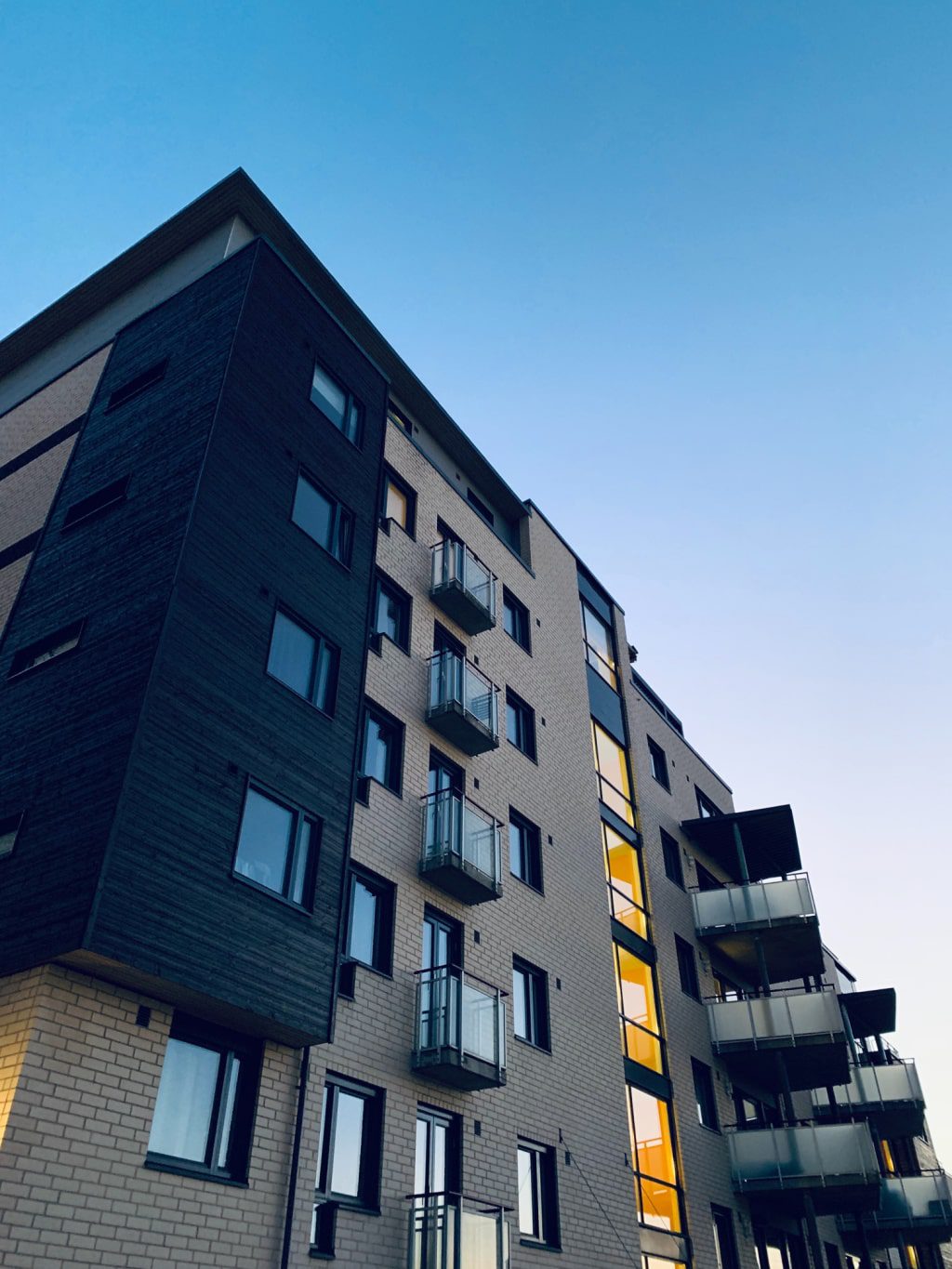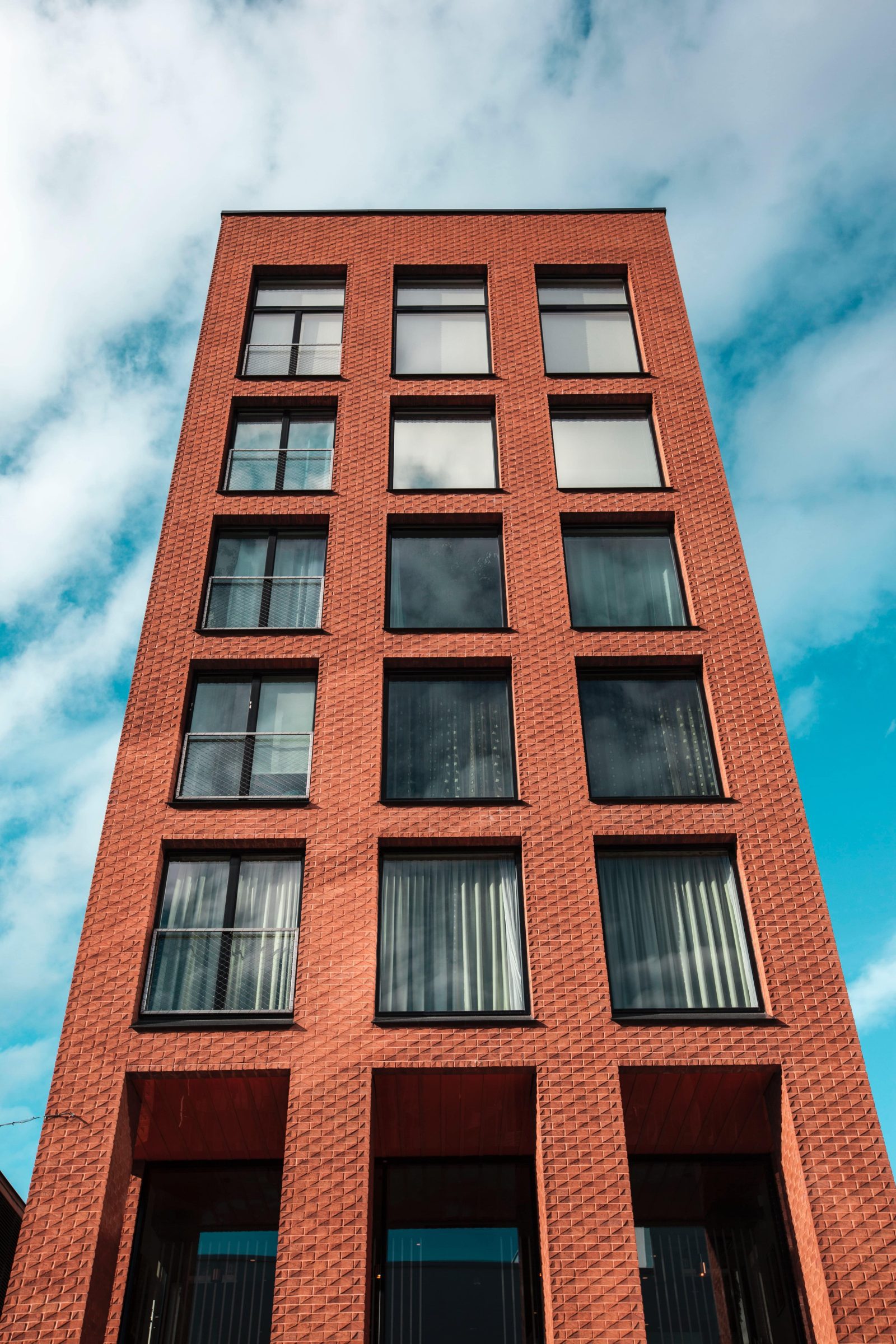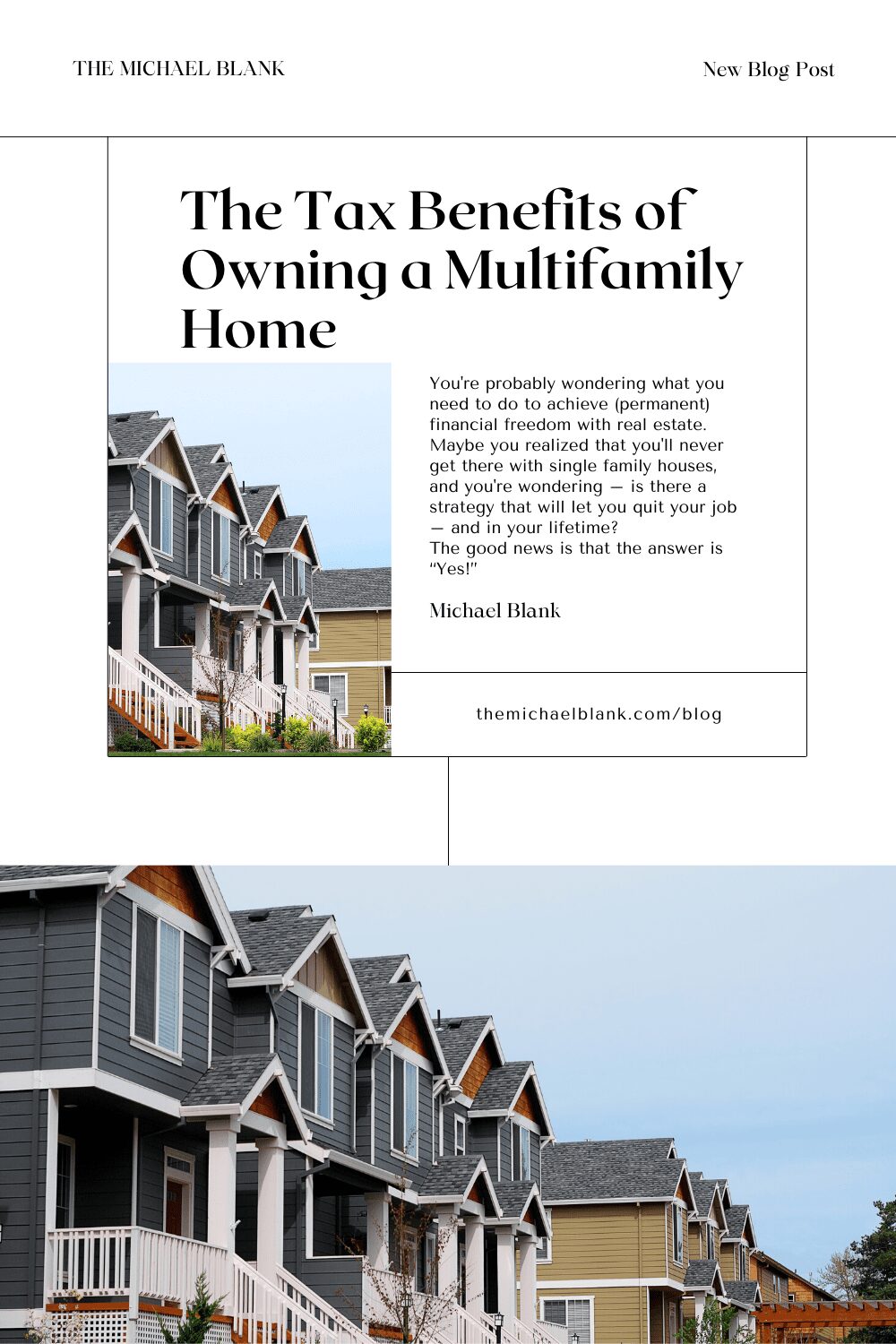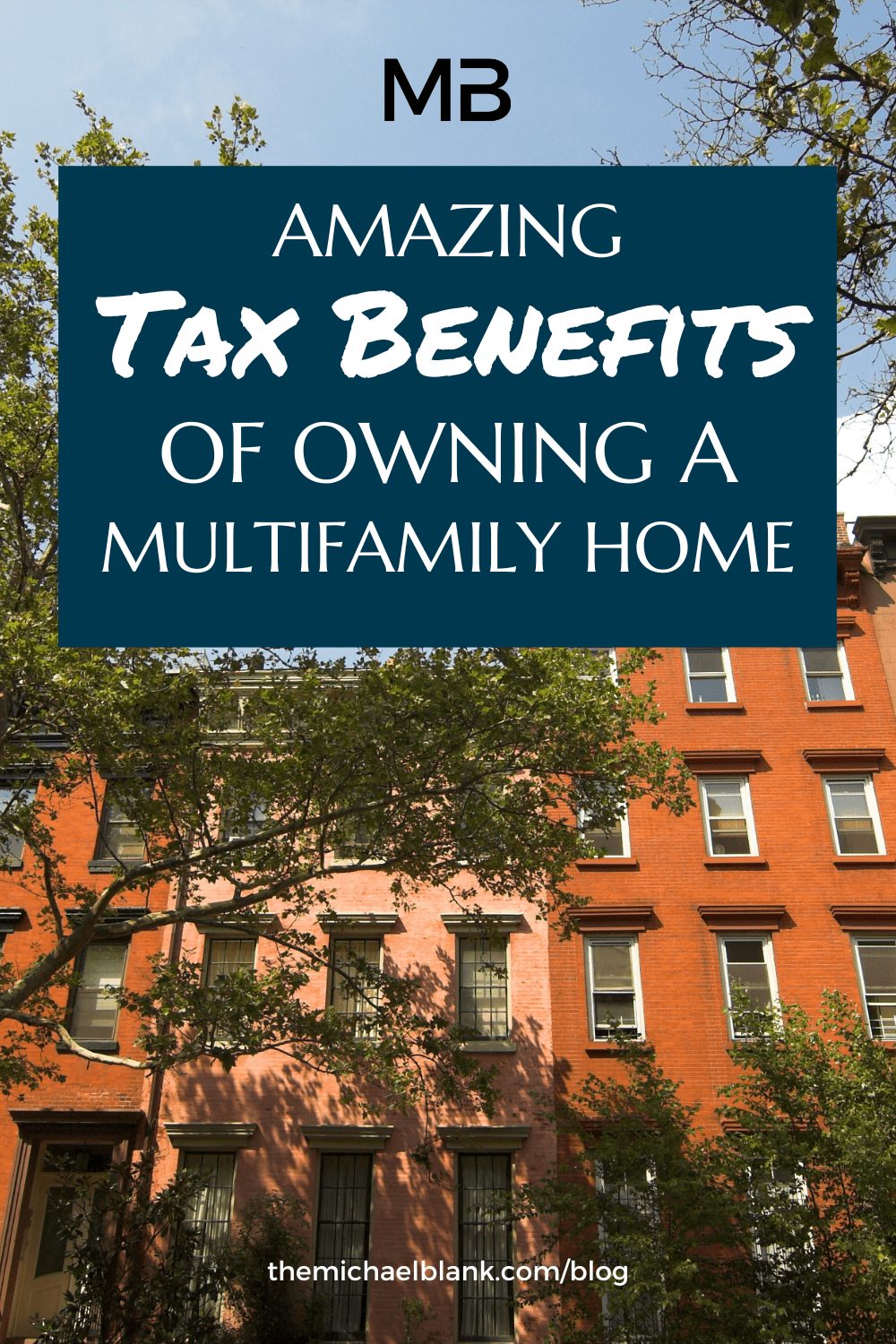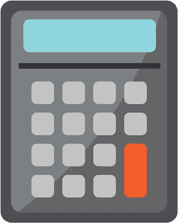Does the idea of paying taxes cause you stress?
We all pay taxes, but there is some knowledge about U.S. tax laws that you as an investor can employ to minimize the taxes you pay.
The Tax Benefits of Owning a Multifamily Home
Make sure you download ALL my resources for FREE at this link: https://themichaelblank.com/vault
When you are assessing a multifamily investment, you probably focus on cash flow return. That’s great, but you should also bring tax benefits into the picture. Let's talk about tax free wealth.
Your tax obligation varies from one asset class to another. When you look at the numbers, multifamily definitely comes out on top.
If you look at the difference between investing in multifamily and investing in the stock market, for instance, multifamily is the clear winner.
The tax benefits of investing in multifamily
The IRS allows us to depreciate the value of a building over 27½ years, writing off that year’s portion of the depreciation as an expense and effectively reducing our taxable income.
As a multifamily investor, you are allowed to accelerate that depreciation, itemizing each component of the building separately via a cost segregation analysis.
That means an engineer analyzes each part of the physical structure of the investment – from the carpet to the roof – and creates a custom depreciation schedule. At the end of the day, you can depreciate up to 90% of the building’s value over 7 years!
That’s huge.
For example, if you put $100K in a deal with a cash-on-cash return of 10%, your earnings that year would total $10K. But when you receive your K-1 statement, it will not show a $10K gain. Instead, it is likely to reflect a loss of about $4,600. This is because the accelerated depreciation offsets your income (about 3.65% of the value of the property to be exact).
Even better, you're allowed to depreciate the entire value of a building in the first year. This is called “bonus depreciation”, and it gives you the opportunity to carry your passive losses forward until you sell the property, using those passive losses to offset your capital gains.
Let’s say you invest $1M in the stock market and earn a 10% return of $100K.
You will pay $20K in capital gains taxes, leaving you with $80K (a net gain of 8%).
If you took that same $1M and invested in multifamily real estate instead, you would apply the tax deduction of 3.65% of the value associated with the building—which translates to $146K.
With that same cash-on-cash return of 10%, you once again earn $100K. But with a tax depreciation of $146K, your show a taxable loss of $46K on a gain of $100K!
The bottom line is, when you’re not sharing your passive income with the US government, you can achieve financial freedom that much faster.
Without a doubt, when you consider the tax codes, there is no better investment than multifamily real estate.
